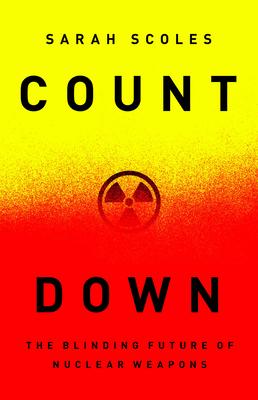
Nuclear weapons are, today, as important as they were during the Cold War, and some experts say we could be as close to a nuclear catastrophe now as we were at the height of that conflict. Despite that, conversations about these bombs generally often happen in past tense. In Countdown, science journalist Sarah Scoles uncovers a different atomic reality: the nuclear age's present. Drawing from years of on-the-ground reporting at the nation's nuclear weapons labs, Scoles interrogates the idea that having nuclear weapons keeps us safe, deterring attacks and preventing radioactive warfare. She deftly assesses the existing nuclear apparatus in the United States, taking readers beyond the news headlines and policy-speak to reveal the state of nuclear-weapons technology, as well as how people currently working within the U.S. nuclear weapons complex have come to think about these bombs and the idea that someone, someday, might use them. Through a sharp, surprising, and undoubtedly urgent narrative, Scoles brings us out of the Cold War and into the twenty-first century, opening readers' eyes to the true nature of nuclear weapons and their caretakers while also giving us the context necessary to understand the consequences of their existence, for worse and for better, for now and for the future.
Nuclear weapons are, today, as important as they were during the Cold War, and some experts say we could be as close to a nuclear catastrophe now as we were at the height of that conflict. Despite that, conversations about these bombs generally often happen in past tense. In Countdown, science journalist Sarah Scoles uncovers a different atomic reality: the nuclear age's present. Drawing from years of on-the-ground reporting at the nation's nuclear weapons labs, Scoles interrogates the idea that having nuclear weapons keeps us safe, deterring attacks and preventing radioactive warfare. She deftly assesses the existing nuclear apparatus in the United States, taking readers beyond the news headlines and policy-speak to reveal the state of nuclear-weapons technology, as well as how people currently working within the U.S. nuclear weapons complex have come to think about these bombs and the idea that someone, someday, might use them. Through a sharp, surprising, and undoubtedly urgent narrative, Scoles brings us out of the Cold War and into the twenty-first century, opening readers' eyes to the true nature of nuclear weapons and their caretakers while also giving us the context necessary to understand the consequences of their existence, for worse and for better, for now and for the future.
Hardcover
$30.00